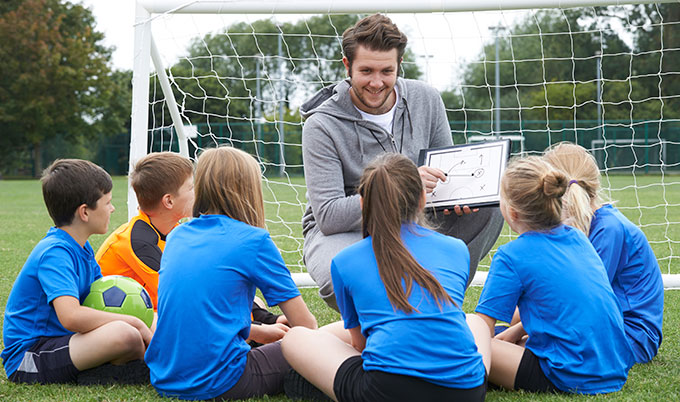Out of School activities
Out of school activities improve children’s educational attainment
Published on: 20 April 2016
Participating in organised sports and joining after school clubs can help to improve primary school children’s academic performance and social skills, new research shows.
Improving achievement
Researchers from Newcastle University, NatCen Social Research, and ASK Research, funded by the Nuffield Foundation, analysed information on more than 6,400 English children born in 2000-01 who are being followed by the Millennium Cohort Study.
Children taking part in organised sports and physical activities at the ages of five, seven and 11 were almost one and a half times more likely to reach a higher than expected level in their Key Stage 2 (KS2) maths test at age 11. No relationship was found between organised sports and activities and KS2 English and science scores.
Children receiving extra tuition in English at some time between the ages of seven and 11 were more likely to have a higher KS2 score than those without. There was some evidence that moderate TV watching was associated with higher KS2 scores – but without knowing the content of the TV watched it was not possible to draw firm conclusions.
Among disadvantaged children, those who attended after school clubs also fared better than their peers who did not take part in such groups. They achieved on average, a two-point higher total score in their KS2 assessments in English, maths and science at the end of primary school.
This is equivalent to two-fifths of the ‘attainment gap’ between poorer children who score, on average, a total of 53 points at KS2 and those from more affluent homes, who gain 58 points.
Liz Todd, Professor of Educational Inclusion at Newcastle University's School of Education, Communication and Language Sciences said: "This is the first research of this scale to show a link between primary school children’s out of school activities and educational achievement and is the best research so far to suggest after school clubs should be funded for young economically disadvantaged children. We believe that out of school activities are improving education and social achievement.
“Many teachers and parents will welcome our finding that reading for enjoyment was found to be positively associated with good KS2 results. It’s good to find this about activities children undertake for their own enjoyment.”

Wide-ranging benefits
The study’s lead investigator, Dr Emily Tanner, of NatCen, said: “Results showed that sports clubs were positively associated with attainment outcomes at age 11, even when accounting for prior attainment at age seven.
“The recent Budget announcement to direct money raised by the tax on sugary drinks towards funding sport and after school activities suggests policymakers are recognising the wide-ranging benefits of these activities. “
From the ages of five to 11, formal sports club activity was dominated by children from more well-off families. This peaked at age seven, with almost four out of five taking part, compared to only two out of five of those from poorer homes.
In comparison, roughly equal numbers of children from both backgrounds were involved in after school clubs at ages five, seven and 11.
The researchers discovered that children who participated in organised sports and physical activities at any time during primary school had better social, emotional and behavioural skills than those who did not take part.
This was also the case for disadvantaged children who had attended an after school club during primary school, compared with other poorer children who had never joined one.
Youngsters who read the most frequently for pleasure had the highest total point score at KS2 and were the most likely to achieve a level five in English.
The findings took into account background factors such as child gender, ethnicity, age and family structure, as well as parental income and occupational class.



